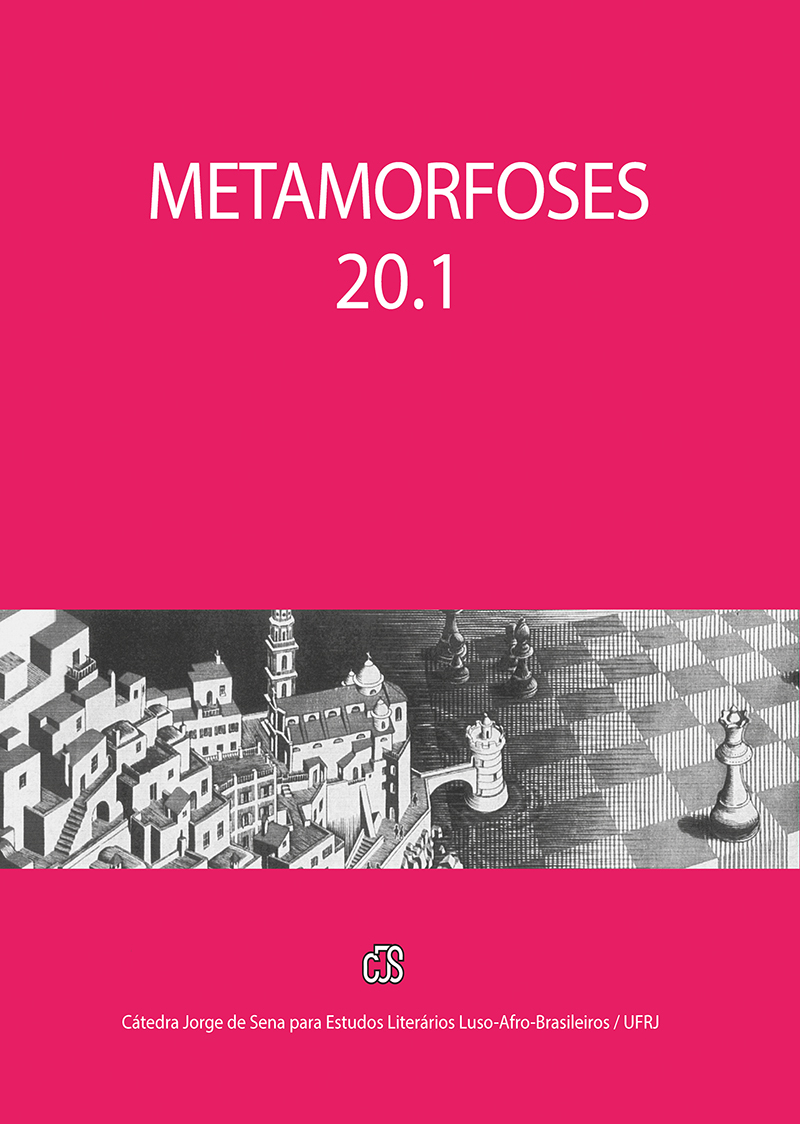A “Tabacaria” revisited by Valter Hugo Mãe. The polysemy of metaphysics in A Máquina de Fazer Espanhóis
Abstract
This article analyses the the dialogue between the Valter Hugo Mãe’s novel A Máquina de Fazer Espanhóis (2012) and the poem “Tabacaria”, written by Fernando Pessoa with heteronym Alvaro de Campos, a prominent name in the context of Orpheu magazine. It is an interesting case of intertextuality that could be classified in terms of Tiphaine Samoyault as a review of “memory literature”. This concept is defined as a reframing act of the past by the present texts. In his novel, Valter Hugo Mãe reviews the Pessoa’s poem through Esteves character (the “without metaphysics”) and its interaction with other internal of the asylum “Feliz Idade”. The romance proposes a debate on the Portuguese cultural identity and disasters of the country’s history in the twentieth century, including the permanence of the legacy of Salazarism mentality of the Portuguese people to the contemporary. We study on the polysemy of the concept of metaphysics from the way the book Mãe of the relay in Fernando Pessoa’s poem.
Downloads
Published
Issue
Section
License
Copyright (c) 2023 Metamorfoses - Revista de Estudos Literários Luso-Afro-Brasileiros

This work is licensed under a Creative Commons Attribution-NonCommercial 4.0 International License.
Autores que publicam nesta revista concordam com os seguintes termos:
- Autores mantêm os direitos autorais e concedem à revista o direito de primeira publicação, com o trabalho simultaneamente licenciado sob a Licença Creative Commons Attribution que permite o compartilhamento do trabalho com reconhecimento da autoria e publicação inicial nesta revista.
- Autores têm autorização para assumir contratos adicionais separadamente, para distribuição não-exclusiva da versão do trabalho publicada nesta revista (ex.: publicar em repositório institucional ou como capítulo de livro), com reconhecimento de autoria e publicação inicial nesta revista.
- Autores têm permissão e são estimulados a publicar e distribuir seu trabalho online (ex.: em repositórios institucionais ou na sua página pessoal) a qualquer ponto antes ou durante o processo editorial, já que isso pode gerar alterações produtivas, bem como aumentar o impacto e a citação do trabalho publicado (Veja O Efeito do Acesso Livre).

